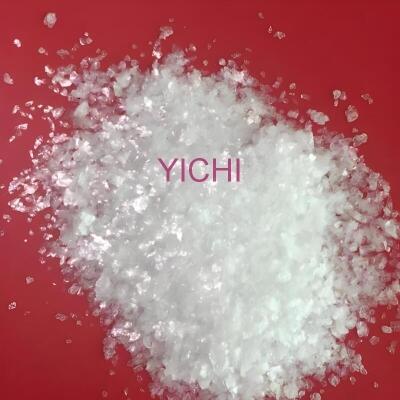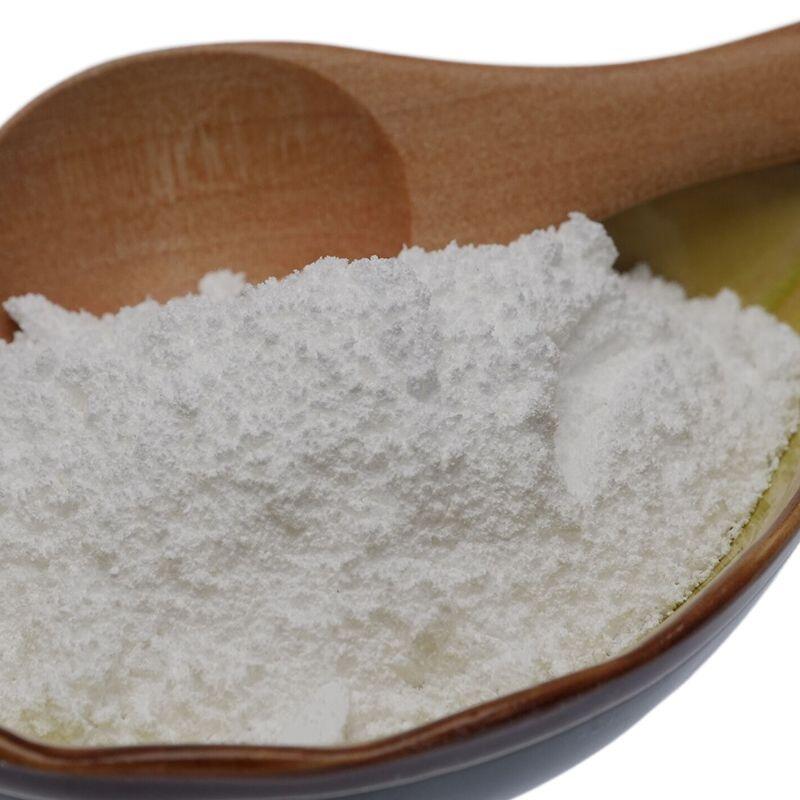-
Categories
-
Pharmaceutical Intermediates
-
Active Pharmaceutical Ingredients
-
Food Additives
- Industrial Coatings
- Agrochemicals
- Dyes and Pigments
- Surfactant
- Flavors and Fragrances
- Chemical Reagents
- Catalyst and Auxiliary
- Natural Products
- Inorganic Chemistry
-
Organic Chemistry
-
Biochemical Engineering
- Analytical Chemistry
-
Cosmetic Ingredient
- Water Treatment Chemical
-
Pharmaceutical Intermediates
Promotion
ECHEMI Mall
Wholesale
Weekly Price
Exhibition
News
-
Trade Service
Introduction Urinary tract infection (UTI) is an infection of any part of the urinary system, including the kidneys, ureters, bladder, and urethra
.
Most infections involve the lower urinary tract, including the bladder and urethra
.
This article summarizes the symptoms, etiology, diagnosis and treatment of urinary tract infections for your reference! Compared with men, women are more likely to develop urinary tract infections
.
Female urinary system Male urinary system symptoms Urinary tract infections do not always have related signs or symptoms.
If symptoms occur, they may include: strong, long-lasting urge to urinate, burning sensation when urinating, frequent urination, low volume of urine, cloudy urine, turbid urine Red, bright pink or cola color-signs of hematuria with peculiar smell Female pelvic pain types Different types of UTI may cause more specific signs and symptoms, depending on the site of the urinary tract infection
.
Cause When bacteria enter the urinary tract through the urethra and begin to multiply in the bladder, a urinary tract infection usually occurs
.
The urinary system sometimes fails to defend against tiny "intruders
.
"
As a result, bacteria dominate the urinary system and a full-scale infection may occur
.
The most common urinary tract infection is seen in women: Bladder infection (cystitis): usually caused by Escherichia coli, which is one of the most common bacteria in the gastrointestinal tract
.
It can also be caused by other bacteria
.
Sexual intercourse may cause cystitis
.
All women are at risk of cystitis.
Women’s physiological anatomy determines that they are more likely to develop cystitis.
The distance from the urethra to the anus and the opening of the urethra to the bladder is very short, and they are susceptible to bacterial invasion.
.
Urinary tract infection (urethritis): Urethritis occurs when bacteria from the gastrointestinal tract enters the urethra from the anus
.
In addition, because the female urethra is close to the vagina, sexually transmitted infections such as herpes, gonorrhea, chlamydia and mycoplasma can also cause urethritis
.
Diagnosis of urine sample analysis
.
Cultivation of urinary tract bacteria in the laboratory
.
Urinary tract imaging
.
If a urinary tract infection is considered to be caused by an abnormality of the urinary tract, an ultrasound, computed tomography (CT) scan, or magnetic resonance imaging (MRI) is required
.
Perform cystoscopy
.
If recurrent urinary tract infections occur, cystoscopy is required
.
The first-line treatment for male cystoscopy for urinary tract infections is usually antibiotic therapy
.
The medicines issued and the duration of use depend on the patient's physical condition and the type of bacteria found in the urine
.
Simple infections For simple infections, the commonly recommended drugs include: trimethoprim/sulfamethoxazole, nitrofurantoin, cephalexin, ceftriaxone, fluoroquinolone antibiotics such as ciprofloxacin (Cipro), levofloxacin, etc.
, usually not recommended For simple urinary tract infections
.
In some cases, such as complicated urinary tract infections or kidney infections, if there are no other treatment options, the doctor may recommend a fluoroquinolone drug
.
Usually, the symptoms of urinary tract infection will disappear within a few days after starting treatment
.
But still need to continue to use antibiotics (a week or more)
.
Complete the entire course of treatment in accordance with the prescription
.
If urinary tract infections occur frequently in recurrent infections, the following recommendations are recommended: low-dose antibiotics for 6 months, sometimes longer
.
Keep in touch with the doctor for self-diagnosis and treatment
.
If the infection is related to sexual life, a single dose of antibiotics should be taken after sexual intercourse
.
After menopause, vaginal estrogen therapy can be given
.
Severe infections If a severe urinary tract infection occurs, you need to receive intravenous antibiotic treatment in the hospital
.
Life>
.
Avoid drinking beverages that irritate the bladder
.
Avoid coffee, alcohol, and soft drinks that contain citrus juice or caffeine
.
Use a heating pad
.
A warm but not hot heating pad can be used on the abdomen to minimize bladder pressure or abdominal discomfort
.
Alternative medicine Many people drink cranberry juice to prevent urinary tract infections
.
Cranberry juice or tablets may have anti-infective properties
.
Researchers are continuing to study the ability of cranberry juice to prevent urinary tract infections, but there is no conclusion yet
.
You can drink cranberry juice to prevent urinary tract infections, but pay attention to calories
.
Some people should pay attention to stomach discomfort or diarrhea
.
If the patient is taking blood thinning drugs (such as warfarin), do not drink cranberry juice
.
.
Most infections involve the lower urinary tract, including the bladder and urethra
.
This article summarizes the symptoms, etiology, diagnosis and treatment of urinary tract infections for your reference! Compared with men, women are more likely to develop urinary tract infections
.
Female urinary system Male urinary system symptoms Urinary tract infections do not always have related signs or symptoms.
If symptoms occur, they may include: strong, long-lasting urge to urinate, burning sensation when urinating, frequent urination, low volume of urine, cloudy urine, turbid urine Red, bright pink or cola color-signs of hematuria with peculiar smell Female pelvic pain types Different types of UTI may cause more specific signs and symptoms, depending on the site of the urinary tract infection
.
Cause When bacteria enter the urinary tract through the urethra and begin to multiply in the bladder, a urinary tract infection usually occurs
.
The urinary system sometimes fails to defend against tiny "intruders
.
"
As a result, bacteria dominate the urinary system and a full-scale infection may occur
.
The most common urinary tract infection is seen in women: Bladder infection (cystitis): usually caused by Escherichia coli, which is one of the most common bacteria in the gastrointestinal tract
.
It can also be caused by other bacteria
.
Sexual intercourse may cause cystitis
.
All women are at risk of cystitis.
Women’s physiological anatomy determines that they are more likely to develop cystitis.
The distance from the urethra to the anus and the opening of the urethra to the bladder is very short, and they are susceptible to bacterial invasion.
.
Urinary tract infection (urethritis): Urethritis occurs when bacteria from the gastrointestinal tract enters the urethra from the anus
.
In addition, because the female urethra is close to the vagina, sexually transmitted infections such as herpes, gonorrhea, chlamydia and mycoplasma can also cause urethritis
.
Diagnosis of urine sample analysis
.
Cultivation of urinary tract bacteria in the laboratory
.
Urinary tract imaging
.
If a urinary tract infection is considered to be caused by an abnormality of the urinary tract, an ultrasound, computed tomography (CT) scan, or magnetic resonance imaging (MRI) is required
.
Perform cystoscopy
.
If recurrent urinary tract infections occur, cystoscopy is required
.
The first-line treatment for male cystoscopy for urinary tract infections is usually antibiotic therapy
.
The medicines issued and the duration of use depend on the patient's physical condition and the type of bacteria found in the urine
.
Simple infections For simple infections, the commonly recommended drugs include: trimethoprim/sulfamethoxazole, nitrofurantoin, cephalexin, ceftriaxone, fluoroquinolone antibiotics such as ciprofloxacin (Cipro), levofloxacin, etc.
, usually not recommended For simple urinary tract infections
.
In some cases, such as complicated urinary tract infections or kidney infections, if there are no other treatment options, the doctor may recommend a fluoroquinolone drug
.
Usually, the symptoms of urinary tract infection will disappear within a few days after starting treatment
.
But still need to continue to use antibiotics (a week or more)
.
Complete the entire course of treatment in accordance with the prescription
.
If urinary tract infections occur frequently in recurrent infections, the following recommendations are recommended: low-dose antibiotics for 6 months, sometimes longer
.
Keep in touch with the doctor for self-diagnosis and treatment
.
If the infection is related to sexual life, a single dose of antibiotics should be taken after sexual intercourse
.
After menopause, vaginal estrogen therapy can be given
.
Severe infections If a severe urinary tract infection occurs, you need to receive intravenous antibiotic treatment in the hospital
.
Life>
.
Avoid drinking beverages that irritate the bladder
.
Avoid coffee, alcohol, and soft drinks that contain citrus juice or caffeine
.
Use a heating pad
.
A warm but not hot heating pad can be used on the abdomen to minimize bladder pressure or abdominal discomfort
.
Alternative medicine Many people drink cranberry juice to prevent urinary tract infections
.
Cranberry juice or tablets may have anti-infective properties
.
Researchers are continuing to study the ability of cranberry juice to prevent urinary tract infections, but there is no conclusion yet
.
You can drink cranberry juice to prevent urinary tract infections, but pay attention to calories
.
Some people should pay attention to stomach discomfort or diarrhea
.
If the patient is taking blood thinning drugs (such as warfarin), do not drink cranberry juice
.







